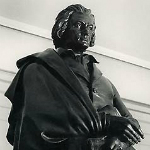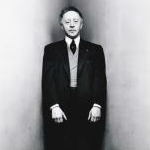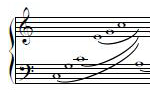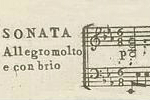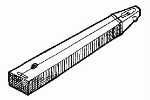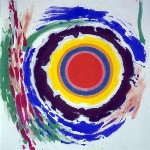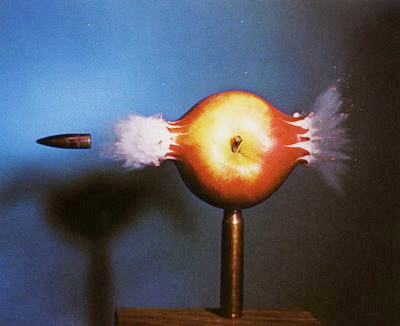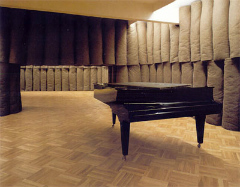"The first question I ask myself when something doesn't seem to be beautiful is why do I think it's not beautiful. And very shortly you discover that there is no reason." -- attributed to John Cage The sound coming from pianos (the physical, real sound) may displease the pianist. In trying out a concert piano, there are often several notes on the instrument that just can't be made to produce what is wanted. Those notes may need "voicing" -- a … [Read more...]
All beats are not created equal
All beats are not created equal. They are endowed by their makers with differing length... Well, not quite. But if we're describing rhythm as rendered live by human musicians then yes, beats vary, even in regularly-beated music played "in tempo." Computer produced beats do not have to vary, as some post-1980 pop music displays. In human-played rhythm, how much do beats vary? Or how much can beats vary and still be perceived as "equal"? … [Read more...]
Construction Zone
“Down below, in the dark of the street lamps, Eusebius said, as if to himself: Beethoven—what lies within this word! Beautifully, within the deep ringing of the syllables, sounds an Eternity.” (“Unten im Laternendunkel sagte Eusebius wie vor sich hin: Beethoven — was liegt in diesem Wort! schon der tiefe Klang der Sylben wie in eine Ewigkeit hineintönend.”) -- Robert Schumann, 1835 Also, this begins with a statue. Every day I'm in the Jordan … [Read more...]
Labor Management
Sound recordings from the first decades of the 20th century form a performance-practice treatise, documenting practices that may offer insight into music-making of earlier times. In the case of piano music, very many of these recordings are recordings of Chopin’s music. There are a lot of recordings of short pieces. (The length of one cylinder and later one “side” of a disc was around 3 minutes.) Chopin: Waltz in A Minor, op. 34, no. 2, Robert … [Read more...]
Immeasurable
If they throw stones upon the roof While you practice arpeggios, It is because they carry down the stairs A body in rags. Be seated at the piano. ... Wallace Stevens: "Mozart, 1935" I ask many young pianists to play un-measured preludes by French composers Louis Couperin, Gaspard Le Roux, or Rameau. These are written pieces in which pitches are specified but rhythm is not. I offer no instruction, no advice. Louis Couperin: Prelude You … [Read more...]
Spectral
At the beginning of Beethoven's Opus 7 Piano Sonata, why this particular chord? Why this register, this particular arrangement of voices? Beethoven: Opus 7 (I) In other piano music by Beethoven, there are long melodic notes which are excited or made to vibrate longer (or differently) by reiterated lower notes. Beethoven: Opus 28 (I) In this passage from the first movement of Opus 28, the long, high right-hand melody notes (not … [Read more...]
Open String
Piano music may reference or be contextualized by music made on other instruments, or sung. Some piano music mimics other instruments. The mimicry might be subtle, or subliminal. In Brahms's Intermezzo, Opus 118, No. 1 -- revered by Milton Babbitt -- there's an extraordinary cadence: Brahms: Intermezzo, Opus 118, Number 1 In my ear/mind, the low open strings (C and G) of the cello are sounding. Musical norms or expectations encoded … [Read more...]
Transaction
When listening to recordings from the 1930s I am fairly certain I don't hear the same thing as someone who listened in the '30s. Even if the sound waves were identical -- I could use a Victrola -- the context is so changed, my reception of the sound so differently influenced that it's different music now. Music is a transaction. When we categorize sound recordings as "music" we may make a misrepresentation. Isn't this sound, these patterns of … [Read more...]
Cause or Effect?
Is written music a set of instructions? A student asked my opinion of a performance he described. In the performance, a pianist used the pedal to sustain long notes while taking his fingers off the keyboard. After thinking, I wrote: "I think the use of the pedal for sustaining notes or helping with legato depends very much on what music is being played. For me, in music by Brahms or Mozart, the central Germanic repertory, long notes must be … [Read more...]
Fixed
"Even the most perfect reproduction of a work of art is lacking in one element: its presence in time and space, its unique existence at the place where it happens to be." -- Walter Benjamin (1936) Our current practice (2013) regarding sound recordings, movies, novels, poems, or images is rooted in old norms of analog reproduction. New art technologies will allow varying surface iteration of an underlying art product. For example, the … [Read more...]
If Aliens Landed
It is now the sixth day of piano auditions at New England Conservatory. We are a few pianists (members of the faculty) sitting at long tables, hearing younger pianists one-by-one. I said "piano auditions" and it's true we hear people play piano. You might think we're evaluating the piano-playing these kids do -- and we are. Or you might think the piano is an instrument used for making music; so we're evaluating the music making these prospective … [Read more...]
Continuity Conscious
In coaching a student in a master class, Alfred Brendel mentioned that very tapered phrase-endings may not allow for long-range musical continuity. If some notes in a cantabile phrase are much softer than the rest, those soft notes may seem to belong to another voice -- they drop out of the line, or suggest a subsidiary one. (In very soft tapering at the end of a melodic line, frequently I have the sense that pianists lose contact with the music, … [Read more...]
Sudden Death
Some folks probably were comforted by an article that appeared online last year -- an article titled, "Why You Probably Won't Experience Your Own Traumatic Death." "Ever wonder what it would be like to get shot in the head, or have your face smash into a car's windshield? Well, you can stop wondering, because you'll never know -- even if it does happen to you... "It takes as long as 150 to 300 milliseconds (ms) to be aware of a collision after … [Read more...]
“New Music Expert”
"I repeat all the great experiments of the 19th Century. My results are much better, more consistent, and more subtly nuanced." What will I think of the scientist who makes such a pronouncement? I might think that person's not a scientist. A craftsman perhaps. An artisan or hobbyist? But this guy's goal in the laboratory would seem to be something other than discovery, something other than science. And doesn't this apply to art as well? Yes, … [Read more...]
Conservatory Theory
Wayne Koestenbaum writes in his Hotel Theory how a hotel represents an ever-changing collection of people. A not-random assortment, complicated in its variability and contextual specificity. How about the various people on an airplane headed from New York to Amsterdam? Or Boston to Cancun? Or the musicians gathered in and by a conservatory? At Juilliard, we had at one time (students and teachers): Dorothy Delay, Felix Galimir, Milton … [Read more...]



